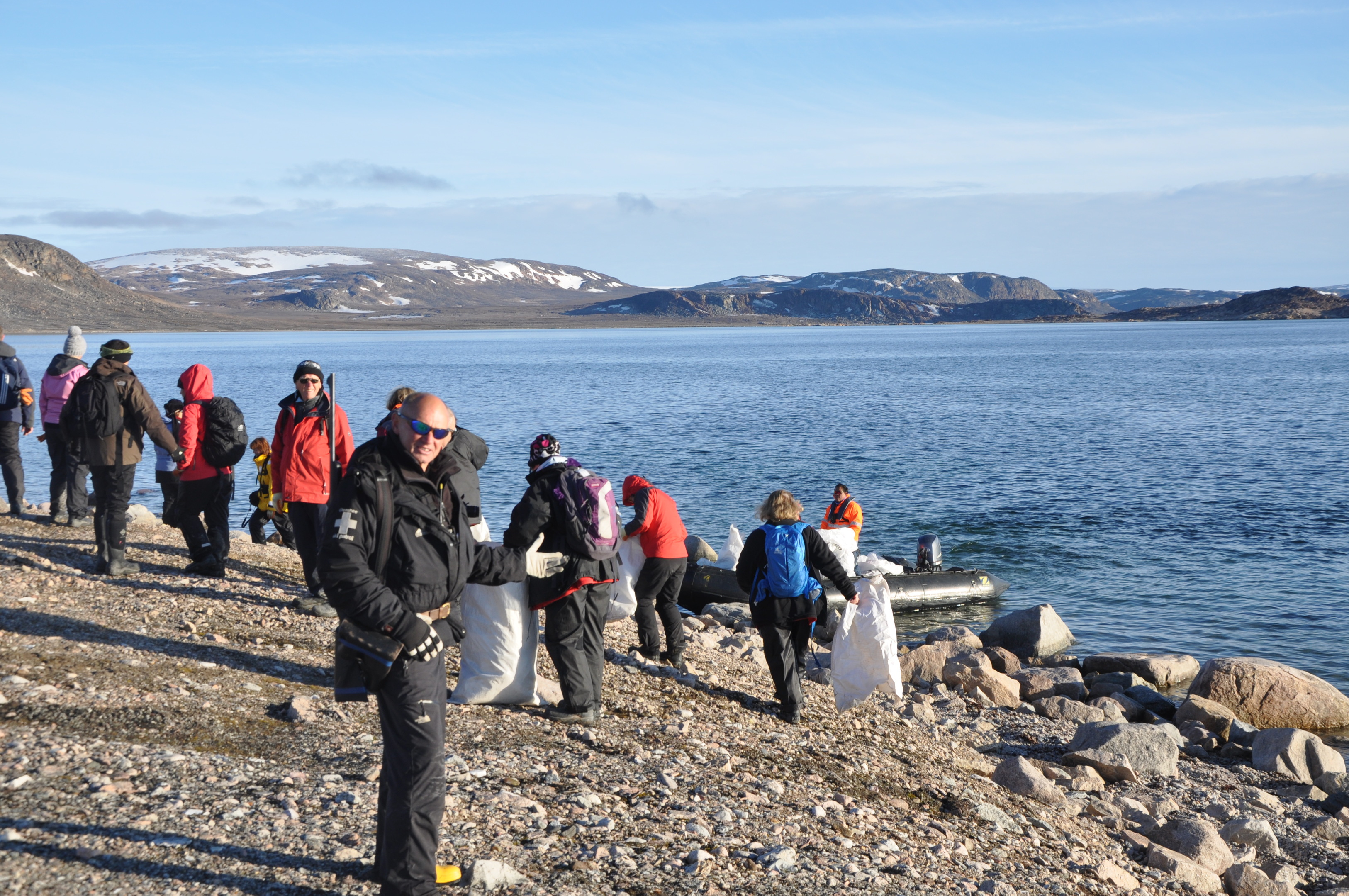A polar tour guide has called for fisherman to stop using the ocean as a “dumping ground” after finding waste believed to be from a north-east firm washed up on the Arctic coast.
Bill Smith, of Ellon, was part of an Arctic expedition to clear up the coastlines in Svalbard last month, when he came across waste from fishing vessels.
And among the mass of litter collected was a box hailing from Peterhead-based Caley Fisheries, which Mr Smith claimed was proof of a direct link between waste and the Scots fishing industry.
Mr Smith said “the bulk” of the litter was derived from fishing boats – including portions of rope, nets and plastic which – all of which endanger animals including dolphins, whales and seabirds.
It is thought that the ocean current system, the Gulf Stream, pushes the waste to the islands.
Mr Smith, 70, was head of art at Ellon Academy for 36 years but now works for Ocean Wild Expeditions as a polar tour guide and lecturer.
He spent the month of August on board the ice-breaker, the Ortelius, touring Svarbard.
He said: “The passengers were involved in a beach clear as part of the expedition. They spent quite a considerable amount of time clearing the beaches.
“We brought back 13 cubic metres (459 cubic ft) of litter and the bulk of it was from the fishing industry.
“A lot of it was just simply off cuts of nets, discarded plastic tossed over board and lengths of rope.
“There was a link to Aberdeenshire when we found a Caley Fisheries box, but obviously that company can’t be held responsible for it directly.
“These are pristine Arctic beaches despoiled by bright coloured debris washed north by the Gulf Stream.”
Mr Smith said the problem was widespread across Svalbard, and claimed: “There is an attitude in people on fishing boat that the sea is a convenient dumping ground.”
But Bertie Armstrong, chief executive of the Scottish Fishermen’s Federation, said the country’s fishing boats are at the “forefront of cleaning our seas”, and had recovered 870 tonnes of marine litter from the waters under Kimo’s fishing for litter initiative.
He said: “It is inevitable that in the challenging world of fishing items will occasionally get accidentally washed overboard from vessels – but certainly not deliberately dumped.”
